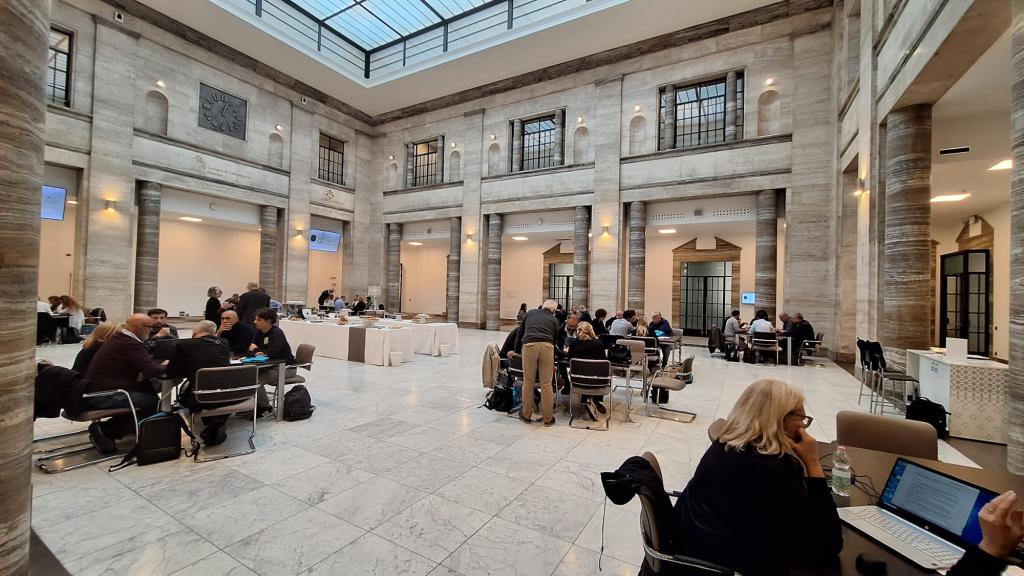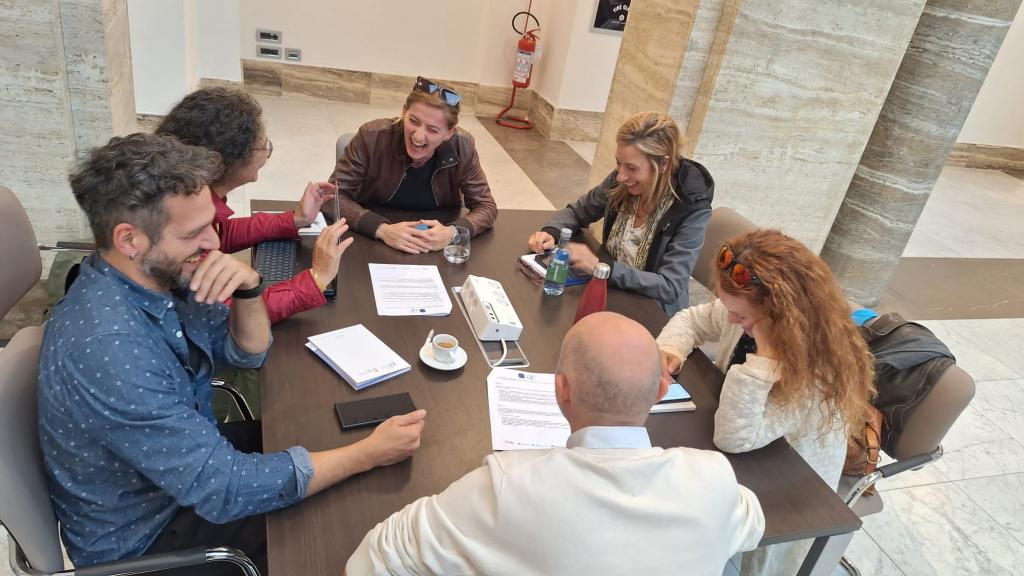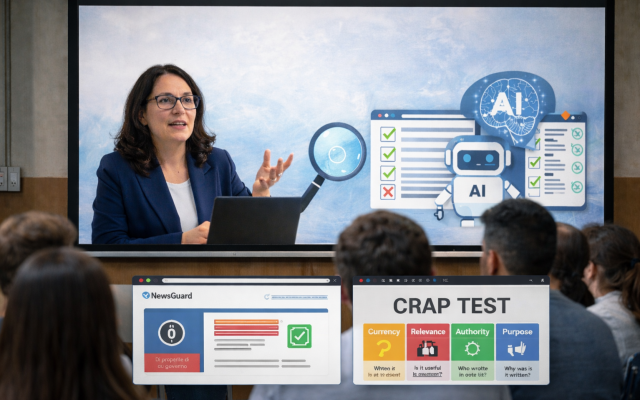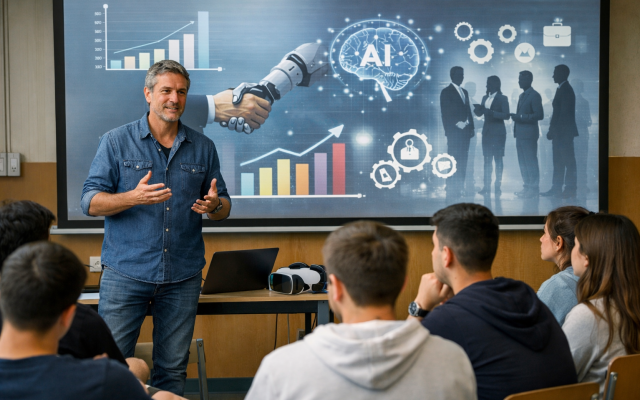“Ri-Generarsi” event in Florence with the Florence Chamber of Commerce and DINTEC.
A few days ago, Microsoft announced a significant investment plan for Italy to drive the digital skills of over one million Italians by the end of 2025, a fundamental wager considering that an estimated 63% of Italian entrepreneurs has no understanding of generative artificial intelligence (TEHA Group-Microsoft data). This is a significant challenge for competitiveness: the smart diffusion of AI could increase the Italian GDP by as much as €312 billion over the next 15 years. And especially SMEs could benefit by an increased added value of €122 billion.
In order to support, the adoption of AI applications by enterprise, the Fondazione Mondo Digitale and Microsoft Italia, in collaboration with the Digital Enterprise Point of the Chamber of Commerce of Florence and DINTEC, an in-house agency of the chamber specialising in innovation and digital tools, organised “Ri-Generarsi: Generative AI for the Growth of SMEs.” The event, which was held yesterday afternoon at the auditorium of the Florence Chamber of Commerce (Piazza Mentana 1), provided entrepreneurs to learn and share experiences on the potential of AI to increase efficiency and productivity.
In greater detail, the event addressed GenAI functions for innovating processes and services, analysing data, and optimising both internal and external communications. Copilot was presented, along with some cases studies, with practical exercises to immediately test the acquired notions, along with worktables for SMEs and start-ups.
The event was organised as part of Project Ital.IA Lab, organised by the Fondazione Mondo Digitale in collaboration with Microsoft Italia to promote AI as a tool for inclusion and growth for both individuals and communities by driving employability through skilling, reskilling, and upskilling actions and promoting the development of technology and its ethical and responsible adoption. The initiative has created 20 hubs throughout Italy, especially in Southern Italy and the suburbs of major cities, where participants can attend free, custom-tailored training courses on the opportunities and benefits of generative artificial intelligence.
In terms of large Italian enterprises, more than 60% have already adopted AI solutions for document management, administrative processes, and accounting. What about SMEs? In this case, the percentage falls sharply. Only 6% of SMEs have integrated AI into their processes, while 33% plans to do so over the next three years (“AI & Digital Transformation” Report, Politecnico di Milano).






